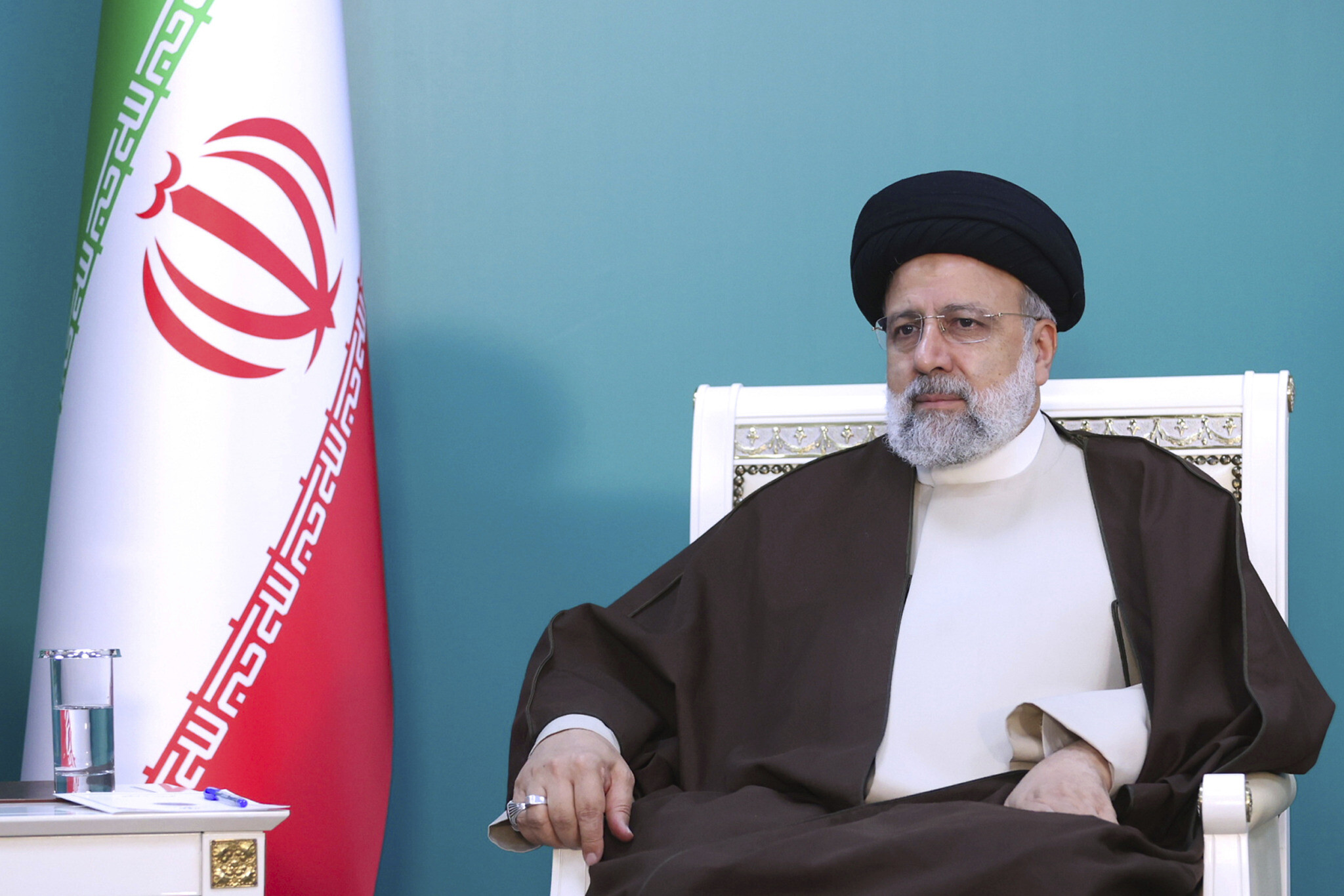Tehran, Iran – Iranian President Ebrahim Raisi, a hardliner considered a potential successor to Supreme Leader Ayatollah Ali Khamenei, was killed in a helicopter crash near the Azerbaijan border on Sunday, officials and state media reported on Monday. The crash also claimed the life of Foreign Minister Hossein Amirabdollahian and seven others on board.
The charred remains of the helicopter were discovered early Monday following an overnight search hampered by severe blizzard conditions. The wreckage was located in the mountainous terrain of East Azerbaijan province.
The convoy consisted of three helicopters, two of which safely reached their destination. The helicopter carrying Raisi and Amirabdollahian reportedly slammed into a mountain peak, though no official cause has been determined yet.

Raisi, 63, who took office in 2021, was on a visit to the Azerbaijan border to inaugurate the Qiz-Qalasi Dam, a joint project with Azerbaijan. President Ilham Aliyev of Azerbaijan, who had met with Raisi earlier, expressed his condolences and offered assistance in the rescue efforts.
Rescue Operations and International Reactions:
Rescue teams, facing challenging weather and difficult terrain, conducted a night-long search. The Iranian Red Crescent Society, aided by international offers of assistance from countries including Pakistan, Iraq, Kuwait, Qatar, Saudi Arabia, Syria, Russia, China, and Turkey, eventually located the wreckage. A Turkish drone helped identify the crash site by detecting a heat source in the area.
Vice President Mohsen Mansouri confirmed Raisi’s death on social media, and state television echoed the announcement. Supreme Leader Ayatollah Khamenei reassured the nation that state affairs would continue without disruption, emphasizing the government’s commitment to continuing Raisi’s policies.
Global Condolences:
Condolences poured in from around the world. Pakistani President Asif Ali Zardari expressed profound shock and sorrow, highlighting Raisi’s support for Muslim causes. Pakistani Prime Minister Shehbaz Sharif announced a day of mourning, with the national flag to fly at half-mast. Indian Prime Minister Narendra Modi also extended his sympathies, noting Raisi’s contributions to strengthening India-Iran relations.
Iranian Domestic and Political Impact:
Raisi’s death comes at a time of internal dissent and international pressure on Iran, especially regarding its nuclear program and military ties with Russia. Raisi, seen as a staunch ally of Khamenei, had tightened morality laws and cracked down on anti-government protests during his tenure. His potential candidacy as Khamenei’s successor had been a topic of considerable speculation.
Despite the tragic loss, the Iranian cabinet held an emergency meeting, and officials emphasized that Raisi’s death would not disrupt government operations. The incident underscores the volatility and challenges faced by Iran’s leadership amid ongoing political, social, and economic crises.
The death of President Raisi marks a significant moment in Iran’s contemporary history, with potential implications for its political future. As the nation mourns, the international community watches closely, anticipating the next steps in Iranian leadership and policy direction.
